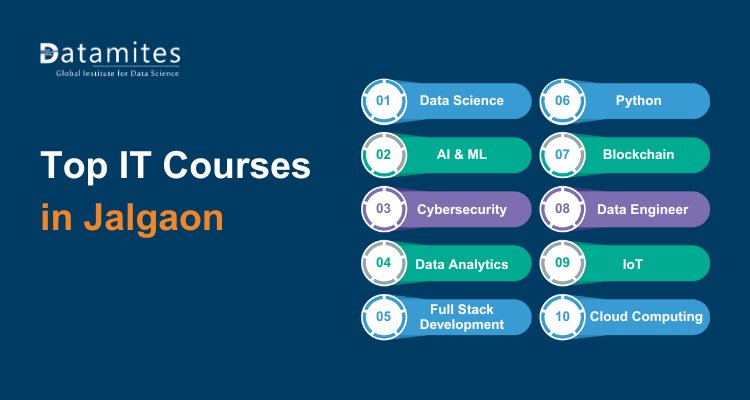Data Engineer vs Data Analyst
Discover the key differences between Data Engineers and Data Analysts, including their roles, skills, and responsibilities. Learn how they work together to turn raw data into actionable insights.

In today’s data-driven era, organizations heavily rely on data to gain insights, make informed decisions, and drive business growth. Two key roles in the data ecosystem are data engineers and data analysts, each with unique responsibilities and skill sets. If you’re interested in pursuing a career as a data engineer, you may consider enrolling in a comprehensive data engineer course to acquire the necessary skills and knowledge. In this article, we will explore the distinctions between data engineers and data analysts, delve into job opportunities in these fields, examine average salaries, highlight the key skills required for each role, and outline their job role tasks.
Read these below articles:
Who is Data Engineer
Data engineers are the architects behind the scenes, responsible for building and maintaining the infrastructure that enables data storage, processing, and accessibility. They design and implement data pipelines, databases, and data warehouses, ensuring the efficient and reliable flow of data across systems.
- Data Engineer Job Opportunities: The demand for skilled data engineers has grown exponentially as organizations strive to manage and leverage their data effectively. Data engineers find job opportunities across various industries, including technology, finance, healthcare, e-commerce, and more. They are sought after for their expertise in building scalable data infrastructure, enabling real-time data processing, and ensuring data quality and reliability. As per the findings of the Maximise Market Research report, the market size for data engineers is projected to expand at a compound annual growth rate (CAGR) of 17.6% and is estimated to reach a value of US$ 204.6 Billion by 2029.
- Data Engineer Average Salaries: Data engineers are highly valued for their ability to construct robust data systems. Remuneration can fluctuate depending on variables such as expertise, geographical location, sector, and company scale. However, on average, mid-level data engineers can earn between $80,000 and $130,000 per year, while experienced professionals can command salaries exceeding $150,000 annually. Moreover, the salary of a data engineer is fair enough in the following cities that includes:
- The salary of a data engineer in UK ranges from EUR 57,916 per year according to an Indeed report.
- The salary of a data engineer in UAE ranges from AED 172,704 per year according to an Indeed report.
- The salary of a data engineer in India ranges from INR 80,00,000 per year according to a Glassdoor report.
- Skills Required for Data Engineer: Data engineers need a strong foundation in programming, with proficiency in languages such as Python, SQL, and Scala. They should have expertise in data modeling, database design, and optimization techniques. Knowledge of distributed computing frameworks like Hadoop and Spark is essential for processing large-scale data. Additionally, data engineers should possess a solid understanding of cloud platforms, data warehousing concepts, and data integration technologies.
- Data Engineer Job Role Tasks: Data engineers are responsible for designing and implementing data pipelines that extract, transform, and load (ETL) data from various sources into data storage systems. They ensure data quality, scalability, and reliability, implementing data governance practices and security measures. Data engineers collaborate closely with data scientists, data analysts, and other stakeholders to understand their data needs and provide them with reliable and optimized data resources. Those who are interested in pursuing a data engineering course can find the ideal data engineering institute at DataMites. At DataMites, expert trainers provide specialized training and offer a comprehensive syllabus, accompanied by high-quality study materials, to guide students through the course effectively.
Refer these below articles:
- Data Scientist Vs Data Engineer
- Data Science vs. Big Data vs. Data Analytics
- Data Science Vs Data Analytics
Who is Data Analyst
Data analysts focus on extracting insights from data and providing meaningful interpretations to support decision-making processes. They analyze datasets, identify trends and patterns, and generate reports or visualizations that convey the findings to stakeholders in a clear and concise manner. If you aspire to become a data analyst, you can enhance your skills by enrolling in a comprehensive data analytics course.
- Data Analyst Job Opportunities: The demand for data analysts has grown across industries as organizations increasingly rely on data-driven insights for strategic decision-making. Data analysts find job opportunities in sectors such as finance, marketing, healthcare, retail, and more. They play a crucial role in helping organizations understand their data and make data-informed decisions. According to a report by Precedence Research, the data analytics market is anticipated to witness substantial growth, with a projected market size reaching USD 346.33 Billion by 2030. The estimated compound annual growth rate (CAGR) during this period is approximately 30.41%.
- Data Analyst Average Salaries: Data analysts are valued for their ability to derive insights from data. Salaries can vary based on factors such as experience, location, industry, and company size. However, on average, mid-level data analysts can earn between $60,000 and $90,000 per year, while experienced professionals can earn salaries exceeding $100,000 annually. Moreover the salary of a data analyst earns well in following cities
- The salary of a data analyst in UK ranges from EUR 29,399 per year according to a PayScale report.
- The salary of a data analyst in UAE ranges from AED 100,161 per year according to a PayScale report
- The salary of a data analyst in India ranges from INR 654000 per year according to a Glassdoor report.
- Skills Required for Data Analyst: Data analysts should be proficient in data manipulation and analysis using tools like SQL and Excel. They should have a strong foundation in statistics and data visualization techniques to effectively communicate insights. Proficiency in programming languages like Python or R is beneficial for data analysis and automation. Additionally, data analysts should possess domain knowledge to understand the context of the data they are working with and provide actionable recommendations.
- Data Analyst Job Role Tasks: Data analysts engage in a range of tasks, including data cleaning and preprocessing, exploratory data analysis, data visualization, and reporting. They work closely with stakeholders to understand their data requirements, define key performance indicators (KPIs), and develop dashboards or reports that provide insights. Data analysts often collaborate with data engineers to ensure data availability and quality for analysis. Enrolling in the best data analyst institution can give insight regarding the domain, it is highly recommended to choose DataMites institute that provides comprehensive training regarding the course.
Also refer these below articles:
- Why DataMites Institute for Data Analytics Course in Bangalore?
- Why DataMites Institute for Data Analytics Course in Bhubaneswar?
- Why DataMites Institute for Data Analytics Course in Chennai?
Data engineers and data analysts play crucial roles in the data ecosystem, with distinct responsibilities and skill sets. While data engineers focus on building and maintaining data infrastructure, data analysts focus on deriving insights from data to support decision-making processes. Both roles offer promising job opportunities, and salaries can vary based on factors such as experience, location, and industry. The choice between becoming a data engineer or a data analyst depends on individual interests, skill sets, and career goals. Organizations rely on both roles to effectively manage and leverage their data assets for business success.
Choosing DataMites as your training institute for Data Engineer and Data Analyst course would be a favorable decision when seeking relevant and comprehensive training in the field. DataMites is a globally recognized training institute that provides Data Engineer and Data Analyst course along with other courses such as artificial intelligence, machine learning, python, deep learning etc. The institute offers an outstanding learning experience, particularly through its comprehensive Certified Data Engineer Course and Certifed Data Analyst Course respectively. The data engineer course spans over a duration of 6 months, encompassing more than 150 learning hours, including 50+ hours of live online training. On the other hand, the data analyst course has a duration starting from four months, with over 200 learning hours.
DataMites courses have received accreditation from IABAC, and upon completing the training program, students are awarded a globally recognized IABAC certification. DataMites offers a specialized syllabus, expert trainers, mock tests, client projects, internship opportunities, and job assistance to its students, ensuring a comprehensive learning experience. With a preferred learning environment and a thoughtfully designed curriculum, DataMites aims to empower individuals with the essential skills and expertise required in the fields of data engineering and data analysis.
DataMites Training Institute offers a globally recognized Data Engineer Course designed to equip learners with essential data engineering skills. The program covers Python, Big Data, SQL, Data Wrangling, and Pandas, providing practical training for real-world applications. Accredited by IABAC, it ensures valuable certification and enhanced career prospects. With expert guidance and job support, DataMites empowers professionals to excel in the data-driven industry.
Certified Data Engineer Course

Certified Data Analyst Course






